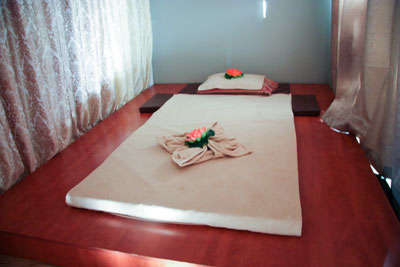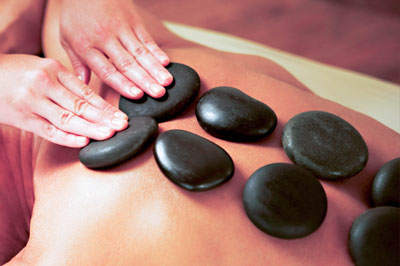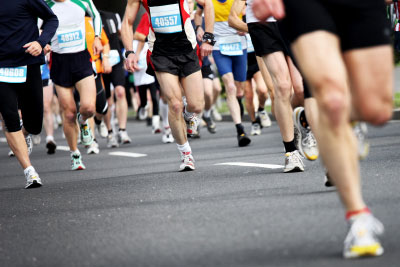In today's fast-paced world, stress and anxiety have become common companions for many people. While there are various approaches to managing these conditions, massage therapy has emerged as one of the most effective natural treatments, backed by scientific research and centuries of traditional healing wisdom.
Key Scientific Findings
- Massage therapy reduces cortisol levels by up to 31%
- Increases serotonin and dopamine production by 28%
- Improves sleep quality and reduces insomnia symptoms
- Enhances immune function and reduces inflammation
Understanding the Science of Stress
Stress is the body's natural response to perceived threats or challenges. While short-term stress can be beneficial, chronic stress can have devastating effects on both physical and mental health. Understanding how massage therapy interacts with the body's stress response system is key to appreciating its therapeutic benefits.
The Stress Response System
When stressed, the body releases cortisol, adrenaline, and other stress hormones. These hormones prepare the body for "fight or flight" but can cause damage when elevated for extended periods.
Chronic Stress Effects
Prolonged stress can lead to anxiety, depression, sleep disorders, weakened immune function, and increased risk of chronic diseases like heart disease and diabetes.
How Massage Therapy Reduces Stress
The Physiological Mechanisms
Cortisol Reduction
Research has shown that massage therapy can reduce cortisol levels by up to 31%. Cortisol is the primary stress hormone, and elevated levels are associated with anxiety, depression, and other stress-related conditions.
A study published in the International Journal of Neuroscience found that participants who received regular massage therapy showed significant decreases in cortisol levels compared to control groups.
Endorphin Release
Massage therapy stimulates the release of endorphins, the body's natural painkillers and mood elevators. These chemicals create feelings of happiness and well-being, counteracting the negative effects of stress.
The pressure and manipulation of massage also trigger the release of oxytocin, often called the "love hormone," which promotes feelings of trust, relaxation, and social bonding.
Specific Stress Relief Benefits
Anxiety Reduction
Massage therapy has been shown to reduce symptoms of anxiety by activating the parasympathetic nervous system, which promotes relaxation and reduces the "fight or flight" response.
Improved Sleep Quality
By reducing stress hormones and promoting relaxation, massage therapy can significantly improve sleep quality. Many clients report deeper, more restful sleep after regular sessions.
Lower Blood Pressure
Regular massage therapy has been linked to reduced blood pressure, which is often elevated due to chronic stress. This can help prevent stress-related cardiovascular issues.
Enhanced Immune Function
Stress weakens the immune system, but massage therapy can help strengthen it by reducing stress hormones and increasing the production of white blood cells.
Best Massage Types for Stress Relief
Swedish Massage
- • Gentle, flowing strokes promote relaxation
- • Improves circulation and reduces muscle tension
- • Ideal for beginners and stress relief
- • Promotes deep breathing and mindfulness
Aromatherapy Massage
- • Combines massage with essential oils
- • Lavender and chamomile promote calm
- • Eucalyptus and peppermint reduce tension
- • Enhanced relaxation through scent therapy
Thai Massage
- • Energy-based approach to stress relief
- • Stretching and acupressure techniques
- • Improves energy flow and reduces blockages
- • Promotes mental clarity and emotional balance
Hot Stone Massage
- • Thermal therapy for deep relaxation
- • Penetrating heat reduces muscle tension
- • Promotes circulation and detoxification
- • Grounding effect through earth energy
Scientific Research Evidence
Clinical Studies Supporting Massage Therapy
Cortisol Reduction Study
A study published in the Journal of Alternative and Complementary Medicine found that participants who received 15 minutes of chair massage twice weekly for five weeks showed a 31% reduction in cortisol levels compared to a control group.
Source: Field, T., et al. (2005). Cortisol decreases and serotonin and dopamine increase following massage therapy.
Anxiety and Depression Research
Research published in the Journal of Clinical Psychiatry demonstrated that massage therapy significantly reduced symptoms of anxiety and depression in patients with generalized anxiety disorder.
Source: Rapaport, M.H., et al. (2010). A preliminary study of the effects of repeated massage on hypothalamic-pituitary-adrenal and immune function in healthy individuals.
Sleep Quality Improvement
A study in the Journal of Alternative and Complementary Medicine found that massage therapy improved sleep quality in cancer patients, with participants reporting better sleep duration and reduced sleep disturbances.
Source: Field, T., et al. (2007). Massage therapy effects on depressed pregnant women.
Creating Your Stress Relief Routine
Optimal Frequency and Duration
Frequency
For stress management, aim for weekly sessions. Monthly maintenance sessions can help sustain the benefits and prevent stress buildup.
Duration
60-90 minute sessions are ideal for stress relief, allowing enough time for deep relaxation and therapeutic effects to take hold.
Consistency
Regular sessions provide cumulative benefits. The more consistent you are, the more effective the stress relief becomes.
Start Your Stress Relief Journey Today
Experience the proven stress-relieving benefits of professional massage therapy. Book your session at Thai Massage and Spa Kempton Park and take the first step toward better mental wellness.


